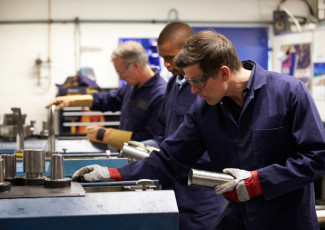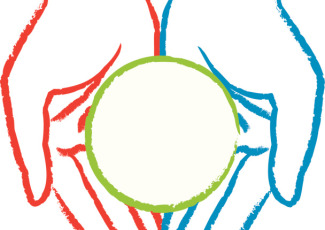Teaming Up to Tackle Student Success
By Mary Graham
October 13, 2014
Colleges accelerate student success through community and academic partnerships.
If there is any one factor that most affects the ability of community colleges to improve student outcomes and meet the goals set by the American Association of Community Colleges (AACC) 21st Century Commission on the Future of Community Colleges, its partnership.
Whether it is a question of increasing completion rates, improving college readiness, or strategically targeting public investment, the seven recommendations outlined by AACC in its Reclaiming the American Dream: Community Colleges and the Nation’s Future report can typically be tied to some level of collaboration between the community college, partner universities, regional employers, foundations or other community and government stakeholders.
Community colleges are notoriously underfunded, and while this reality presents significant barriers to meeting the goal of increasing degree completion, we should not allow it to limit our efforts. We must do more to promote student success — including identifying new revenue sources to fund reform — and partnerships are key to these efforts.
At Mississippi Gulf Coast Community College (MGCCC), we have leveraged partnerships to create pathways for degree completion that provide students with broader education and training opportunities. Take, for example, our recent agreement with Mississippi State University. This collaboration will soon allow our students to earn a bachelor’s degree in engineering at an MGCCC campus. Or, consider our Transitions Academy. This program, which has about 30 participants, helps students prepare to take the GED exam while simultaneously enrolled in college-level programs. The result: students can be workforce-ready in as little as one semester.
Other MGCCC partnerships, such as the Maritime Academy at Ingalls Shipbuilding in Pascagoula, allow students to work while taking short-term classes or programs at the college. Participating students earn stackable credentials and credit for competency-based education, putting them on the fast track to an associate degree in maritime technology. Students engage in this work while also completing professional internships required by industry partners, just one more step on the path to career success.
Dual enrollment
Through a recent agreement with the University of Southern Mississippi, MGCCC students can obtain dual admission to both academic institutions, providing an opportunity to seamlessly progress through educational programs with access to the best resources available at both institutions, helping them achieve their academic goals faster.
As an administrator, you might wonder what role partners play in these agreements? Sometime partners provide resources. Other times, they provide funding.
Ingalls Shipbuilding, for example, purchased the welding equipment for our Transitions Academy. The company also covered much of the costs associated with our Maritime Academy. In other cases, partners have helped with research and planning. Most important, partners present MGCCC students with new opportunities for degree completion — and, ultimately, success in college and in life.
Collaboration is key to students’ and community colleges’ prosperity. Through these alliances, we can create new pathways to completion, secure necessary funding, and explore new opportunities for innovation.
How does your college leverage partnerships for student success? Tell us in the Comments.










